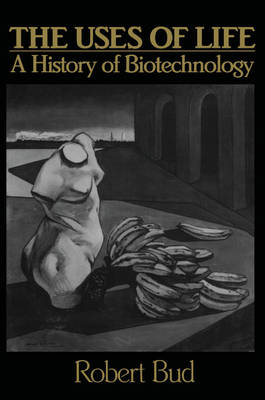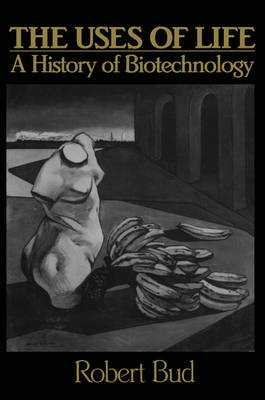
- Afhalen na 1 uur in een winkel met voorraad
- Gratis thuislevering in België vanaf € 30
- Ruim aanbod met 7 miljoen producten
- Afhalen na 1 uur in een winkel met voorraad
- Gratis thuislevering in België vanaf € 30
- Ruim aanbod met 7 miljoen producten
Omschrijving
Robert Bud shows how the hopes and fears for the combination of biology with engineering have been an integral part of the history of the twentieth century, including the Great Depression of the 1930s, the two world wars, and the more recent anxieties over genetic and entrepreneurial industry. Skillfully, the author relates biotechnology's origins in the chemistry and microbiology of the nineteenth century. Personalities with influential roles in its subsequent development such as Chaim Weizmann, Kark Ereky, Patrick Geddes, Lewis Mumford, Joshua Lederberg, and Jeremy Rifkin, among many others, are discussed. Analysis of the changing roles and hopes for biotechnology in government and society takes the book to the end of the 1980s, when recombinant DNA techniques had become the dominant driving force behind what today we think of as biotechnology.
This first history of biotechnology provides a readable and challenging account for anyone interested in the development of this key component of modern industry.
Specificaties
Betrokkenen
- Auteur(s):
- Uitgeverij:
Inhoud
- Aantal bladzijden:
- 320
- Taal:
- Engels
Eigenschappen
- Productcode (EAN):
- 9780521476997
- Verschijningsdatum:
- 27/05/1994
- Uitvoering:
- Paperback
- Formaat:
- Trade paperback (VS)
- Afmetingen:
- 226 mm x 152 mm
- Gewicht:
- 476 g

Alleen bij Standaard Boekhandel
Beoordelingen
We publiceren alleen reviews die voldoen aan de voorwaarden voor reviews. Bekijk onze voorwaarden voor reviews.







